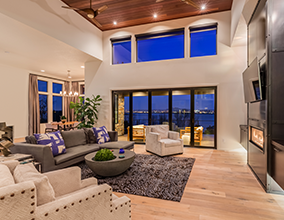
Chances are, you’ve heard the expression, “Your home is your biggest investment.” For most homeowners, that’s true. So, when you’re shopping for a new home, it’s important to consider the financial opportunity of any purchase. Ideally, you want a home that is likely to increase in value over time.
In other words, you want a home with a strong potential return on investment.
But dollars aren’t the only type of return you should look for in a new home. Real estate is unique in that the “emotional” return is just as important as the financial return — and, in some cases, even more so.
Say, for example, you’re thinking of moving to an area that is closer to work. In fact, you’ll cut your commuting time by an hour each day. Financially, that return on investment means little beyond some savings on gas. However, the emotional payoff can be very high, especially when you consider what you can do with that extra hour each day. Imagine what it would mean to spend more time with your kids or work out at the gym more often.
So, considering the emotional return on investment when you’re moving is essential. It has a huge impact on your lifestyle and your enjoyment of the property.
How do you factor that in when selling your property and searching for your next dream home?
When you see a listed home you like, make a list of all the emotional benefits of living there. That list might include having a park nearby, living closer to friends or family, having a home office that isn’t the kitchen table, having more space to accommodate a growing family, and so forth.
Then, factor that list into your decision of whether or not to buy.
















